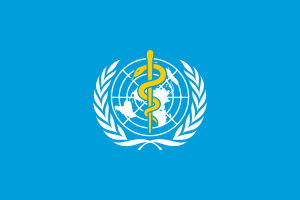 Image via Wikipedia
Image via WikipediaIt's Not About The Patents, Stupid!
By Atty. Elpidio Peria
The case filed by Pfizer Philippines, Inc. against the Filipino pharmaceutical firm United Laboratories, Inc. (UNILAB) is not mainly about the patent that was issued by the Intellectual Property Office of the Philippines; rather, it is about maintaining worldwide market control over the product, which is a cash-cow for the company, earning it around US$ 12.7 billion worldwide in 2007, making the drug its best-selling drug ever in its corporate history, and the number one best-selling drug in the world.
Policy-makers and the general public should take note, however, that to maintain its good standing in the US market, Pfizer as reported by the Los Angeles Times last 15 May 2009, had been giving Lipitor away, for free, including viagra, to Americans who have lost their jobs and health insurance from the US recession since January 1 of this year, for up to a year.
The only requirement for this freebie is that those jobless have been on the Pfizer drug for three months or more.
This marketing and public relations ploy stands in contrast to the other marketing methods that were found to be fraudulent by the US FDA itself, especially when on September 2, 2009, it was reported by Reuters to have agreed to pay $2.3 billion to resolve criminal and civil allegations that it illegally promoted several of its drugs beyond U.S. Food and Drug Administration-approved uses and dosages.
In the case of Lipitor as with its other drugs, Pfizer was found to have given kickbacks to providers to have such medicine prescribed.
Pfizer will do anything to maintain its market dominance over the product.
But the bigger prize for now seems to be the potential of statin drugs like Lipitor to combat swine flu. The New York Times reported on 29 October 2009 that people who took Lipitor when they caught flu and had to be hospitalized, were twice as likely to survive than those who were not on such medicines.
It was also reported that a federal study is underway to test these occurrences and doctors are optimistic because previous studies have shown that statins improve survival from infectious diseases.
According to the World Health Organization (WHO) website on the AH1NI1 virus, as of 25 October 2009, there have been more than 440,000 laboratory confirmed cases of pandemic influenza H1N1 2009 and over 5700 deaths reported to WHO worldwide.
The WHO figures appear with a disclaimer that since countries are no longer required to test and report individual cases, the number of cases reported actually understates the real number of cases.
Given this potential for a new market for Lipitor, Pfizer is just acting like a typical monopolist seeking to maintain its dominance on its best-selling drug, even extending its monopoly power to new uses of that same drug.
What Pfizer may want to prove in its suit against UNILAB is its ability to have its patent extended whenever there are new uses of that same drug.
Pfizer will then use this legal principle to apply for a new set of patents on this same drug, but this time with a new application of Lipitor, most probably, swine flu, or with any other disease or pandemic that may come along in the future, which the drug can treat.
When that happens, then Pfizer may have succeeded in 'evergreening' its patent.
'Ever-greening' consists of the patenting of minor changes to or versions of existing products (e. g. formulations, dosage forms, polymorphs, salts, etc.) in order to extend the life of the original patent over an active ingredient.
Whether Pfizer will succeed in getting this legal principle upheld is an interesting matter that will test the effectivity of the new law, the Cheap Medicines Act or Republic Act 9502 in dealing with these issues.
The said law states what may no longer be patentable in the case of inventions relating to drugs and medicines :
a) the mere discovery of a new form or new property of a known substance which does not result in the enhancement of the known efficacy of that substance,
b) the mere discovery of any new property or new use for a known substance,
c) the mere use of a known process unless such known process results in a new product that employs at least one new reactant.
To a non-lawyer, and even lawyers with no background in patent law, all these legal terms boil down to a requirement that for a new chemical substance to be patentable, it must be shown to have an enhanced efficacy.
What efficacy means however is not yet clear, as the implementing regulations of the Cheap Medicines Act on this matter has not yet come out.
The Cheap Medicines Act tasks the Intellectual Property Office of the Philippines (IPO) the duty to develop the criteria for determining what efficacy means, which shall be embodied in the Manual for Substantive Examination Procedure (MSEP).
The Manual is what will guide patent examiners on whether to grant or deny patent applications before the IPO.
But so far, the IPO has not come out with information even on its website what it is doing to develop this Manual as the current Manual on its website does not contain any references to the Cheap Medicines Act.
oOo






